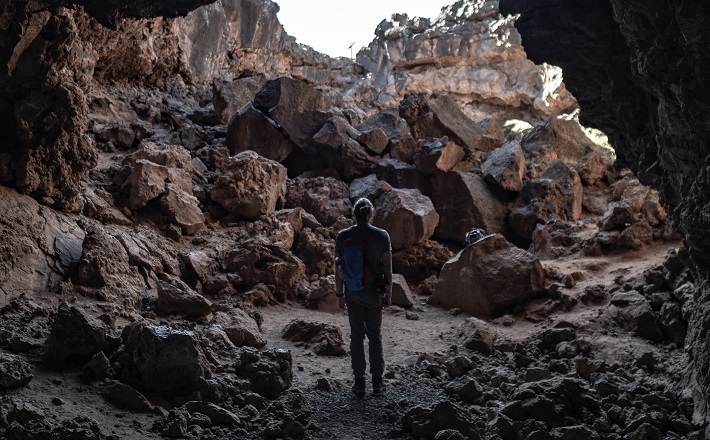Commentary on John 11:1-45
A close friend nearing death and the dry bones of a nation command our attention this Sunday.
Yet, while the story of Lazarus’ death and rising may seem straightforward in some ways, its substance is complex and mysterious: Jesus’ vision of God’s power beyond what human beings can comprehend.
Jesus does not hurry to the bedside of his dying friend. He sees into the circumstance of death to the ending of the story. When Jesus finally travels to see his long-time friends, to share their grief and to reveal the glory of God, he does so even though the journey may prove dangerous. He sees beyond the present to a future in which God’s hand is at work and the word of the Lord does what is impossible.
It is no accident that the raising of Lazarus is paired with the reading from Ezekiel. Jesus’ relationship to death is mirrored in Ezekiel’s story. Both narratives reveal God’s power. When the preacher attends to the Old Testament reading along with the Gospel, the images and the meaning of both are stretched and strengthened. When we are grieving, weary, and lacking hope, it may feel like we are gazing on a valley full of bones. A merciful God whose power is infinite, however, creates hope just when it is needed.
Jesus sees beyond death, and with that same God-given vision, Ezekiel sees the bones coming to life again. Jesus, the prophet, who is hounded throughout his teaching and healing life, unappreciated in his hometown, derided and plotted against, grilled for healing on the Sabbath, drives his followers always to a deeper understanding of God. The prophet Ezekiel, like Jesus, was not admired and fawned over. But he is guided by God’s hand and the spirit of the Lord into the place of grieving, that dusty valley where everything is desolation, the bones of God’s beloved Israel, the lifeless shards of a ruined nation. He is given a vision painted in stark terms with dry bones and the assumption that all is lost.
We sadly also know that place, but we often do not recognize it as inhabited by the spirit and the hand of God. Jesus knew the presence of God’s power in that place of grief, and his word of command is the province of utter confidence that “nothing is impossible with God.” Jesus stands outside Lazarus’ tomb in the place of grieving.
When Ezekiel pronounces the word of the Lord in obedience to God’s command to prophesy, the bones rattle. When Jesus cries, “Lazarus, come out!” the dead man rises.
The word of the Lord is the force that brings life out of death, in the stories of the bones and of Lazarus. The Lord speaks and it comes to be. The universe and all that lives came into existence on the power of God’s word. Both the dry bones and Lazarus, the man who has been dead for three days, hear and respond to the word of the Lord.
Even when everything about Lazarus’ death makes it impossible for his sisters and the gathered friends to imagine he could walk out of the tomb, when Jesus calls to him, he comes. Resurrection is God’s realm. It is not for a human being.
It needs to be said, however, that the story of Lazarus’ rising from the dead is not identical to the resurrection of our Lord. Lazarus is raised; Jesus is resurrected. The difference is more than semantics, but the point in both stories is the power of God.
The people who see Lazarus come out of his tomb are given the ability to believe because Jesus does not do the easy thing (keep bad things from happening), Jesus does the hard thing, which is to reverse destruction. Jesus does not hurry to Lazarus’ bedside to nurse him to health. He waits. Takes his time. And then when death has occurred, Jesus appears at the tomb to weep with the mourners. The detractors see his tears and wonder why he did not come earlier to save Lazarus as he gave sight to the blind man. It is a question that stops many people from believing in Christ because it is logically impossible to answer, and we human beings crave answers that make sense. “If God Almighty can do one thing, why not another?” they ask.
Finally, here is why God’s work is not what we expect. The raising of Lazarus occurs in this way:
- Jesus orders the stone to be removed,
- gives thanks to the Father for hearing his prayer, and
- commands Lazarus to emerge.
Neither Lazarus nor anyone else present is said to believe in Jesus’ power. Just the opposite is the case. The crowd does not expect the dead man to emerge when the stone is rolled away. The people assume that death is final, irrevocable, and there is no remedy for it.
Yet, the story shows us that the crowd did not have to believe in order to make Lazarus’ appearance possible. Human belief is not the source of the rising. Jesus’ oneness with the Father is the source of the rising. Jesus sees beyond death to God’s infinitely greater power. He demonstrates with thanksgiving and authority that his vision is true.
Through just such powerful events, the veracity of Jesus’ vision is given to us. We cannot come to them with ready-made belief. Instead, Jesus creates the ability to believe by causing death again and again to turn to life. Those who watch and help to unbind Lazarus are given the vision they need.
Many bindings in our world seem impossible to untangle, but every day the word of the Lord frees someone. That is the message of this story. We are left to wonder at Jesus’ conviction about God’s word, but the evidence of God making good come from destruction is all around us.


March 29, 2020